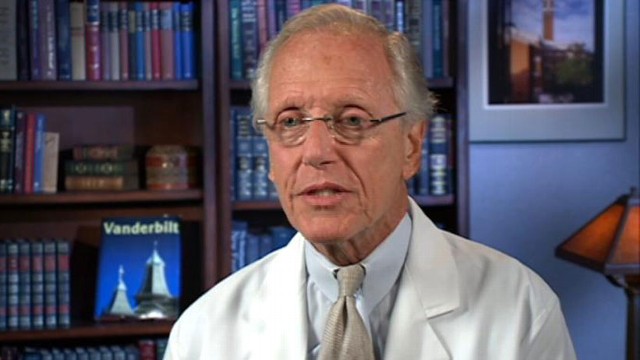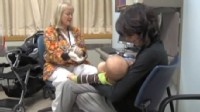The United States might see the highest number of cases of whooping cough in more than five decades this year, possibly caused by a weaker vaccine, many experts say.
The Diphtheria, Tetanus, acellular Pertussis (DTaP) vaccine for children has not been as effective in protecting against whooping cough as the older version that was available nearly two decades ago, according to a study published today in the Journal of the American Medical Association.
19,450 cases of whooping cough, also known as pertussis, have been reported so far in the United States, compared to nearly 8,579 cases seen this time last year, according to the U.S. Centers for Disease Control and Prevention.
As many as 95 percent of whooping cough cases might result from the waning immunity of people who were initially vaccinated but have not gotten the booster vaccine, according to Dr. William Schaffner, chairman of preventive medicine at Vanderbilt University Medical Center in Nashville, Tenn.
The original vaccine, which contained a small amount of inactivated whole bacteria, was a crude form that brought with it side effects like fever and swelling at the injection site, but it was considered lifelong lasting at preventing the disease. In the late 1990s, it was substituted for a so-called cleaner vaccine that only used small particles of the bacteria and was considered safer but might not be as effective long term.
"That makes getting the booster shot more important," Schaffner said.
The government recommends that children get vaccinated in five doses between ages 2 month to 6 years. Children around age 12 are recommended to receive a booster shot.
"Despite its efficacy, it looks that over time some of the protection does start to wane and decrease," said Dr. Charles Foster, staff physician in the Center for Pediatric Infectious Diseases at the Cleveland Clinic.
Even the booster shot might not as effective in warding off whooping cough among older teens and adults, according to the CDC. In some cases, older teens who contracted the disease had received their booster, the agency told ABC News. Increasing rates have been seen in 13 to 14 year olds, who would have recieved their booster about two years prior.
"No vaccine is 100 percent effective," Foster said.
The body's immune response wanes over time. And if there's no exposure to this vaccine after a few years, then the protection might decrease, Foster said.
"But there's pretty good data that the vaccine is mostly effective in patients who have the full course of the vaccine," he said.
A spokesman for GlaxoSmithKline, a company that makes the vaccines, says the company has reviewed the number of cases of pertussis this year.
"We are not in a position at this time to draw specific conclusions from the data, but we anticipate working closely with the CDC and other public-health authorities to fully understand what factors may be contributing to the increased incidence of pertussis currently being seen in Washington and to a lesser extent in other states in the U.S.," the spokesman said in a written response to ABC News on behalf of the company.





No comments:
Post a Comment